Waves
In 1975, Auckland folk quartet Waves were the white sheep among New Zealand’s emerging rock talent. Their sound – largely acoustic and strong on harmonies – was uncommon in Auckland’s gig circuit, as heavier acts such as Dragon and Hello Sailor began to dominate. Yet Waves’ self-titled debut album made a splash both culturally and commercially, reaching No.6 on the New Zealand album charts.
It would remain the band’s sole album release for 38 years, until it was reissued to great acclaim in 2013 with previously unreleased tracks. The cliché of the difficult second album was painfully real for Waves, as the setbacks encountered while producing a follow-up to the debut led to their disbanding in 1977.
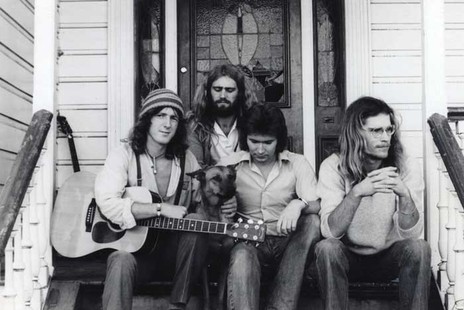
Waves, signed to Direction Records, had strong support from Hot Licks with a cover in September 1975. From left to right: Graeme Gash, Michael Matthew, Kevin Wildman, David Marshall.
Photo credit:
Photo by Terry Fong
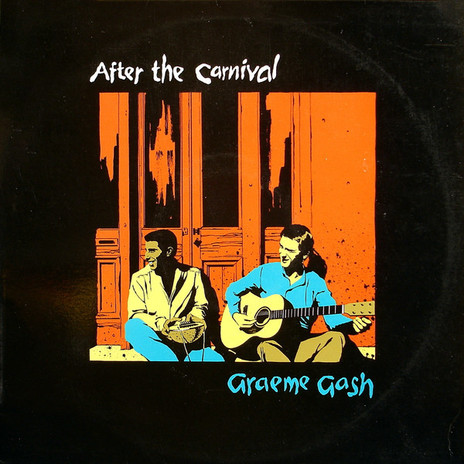
Graeme Gash - After the Carnival (Siren, 1981)
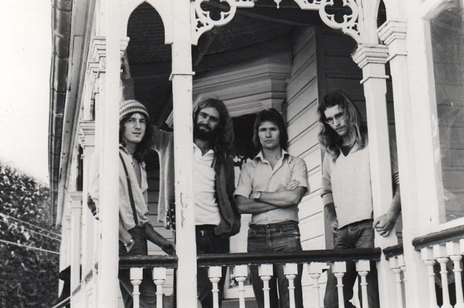
Auckland band Waves, September 1975. From left to right: Graeme Gash, Michael Matthew, Kevin Wildman, David Marshall.
Photo credit:
Photo by Terry Fong
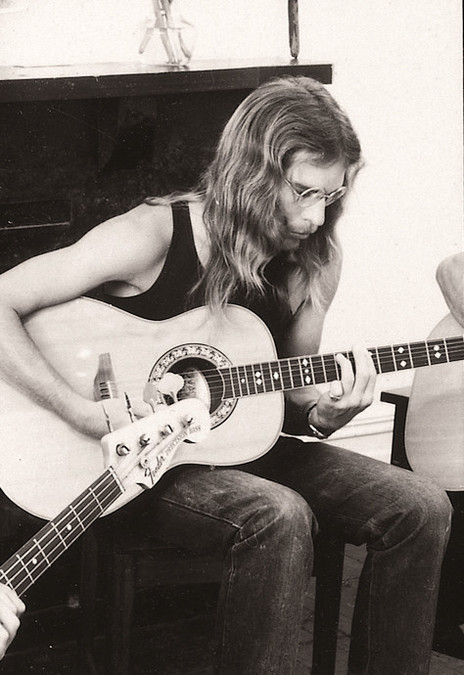
David Marshall, Waves.
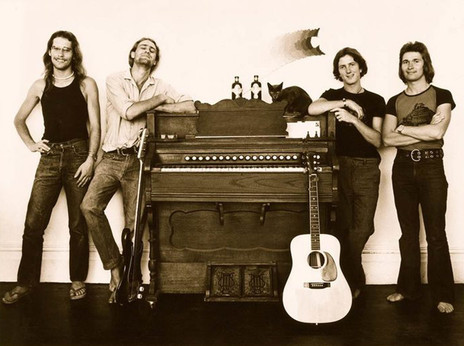
The original line-up of Waves in a publicity photo. From left: David Marshall, Michael Matthew, Graeme Gash, Kevin Wildman.
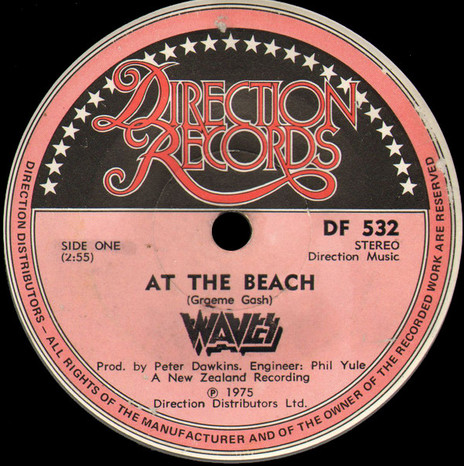
Waves - At the Beach (Direction Records, 1975)
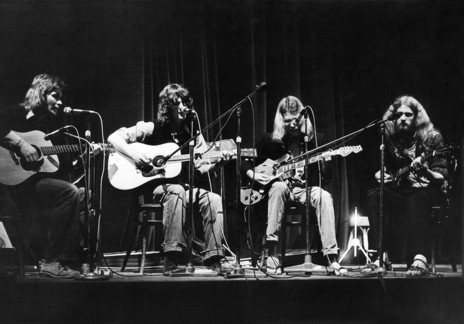
Waves, from left to right: Kevin Wildman, Graeme Gash, David Marshall, Michael Matthew.
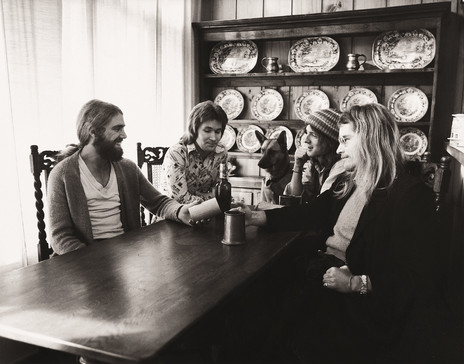
Waves at the dining table, from left to right: Michael Matthew, Kevin Wildman, Graeme Gash, David Marshall.
Photo credit:
Photo by Terry Fong
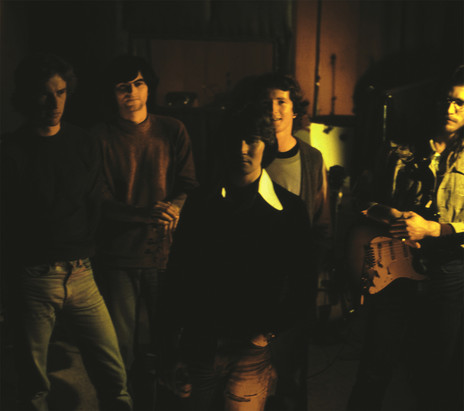
Waves Mk II at Mascot Studio, July 1977. Left to right: Graeme Gash, Michael Mason, Kevin Wildman, Rex Carter, David Marshall.
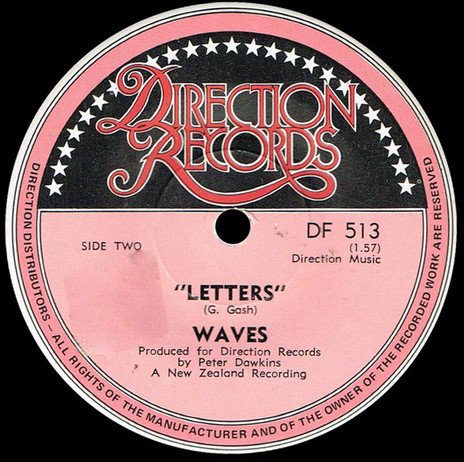
Waves - Letters (Direction Records, 1975)
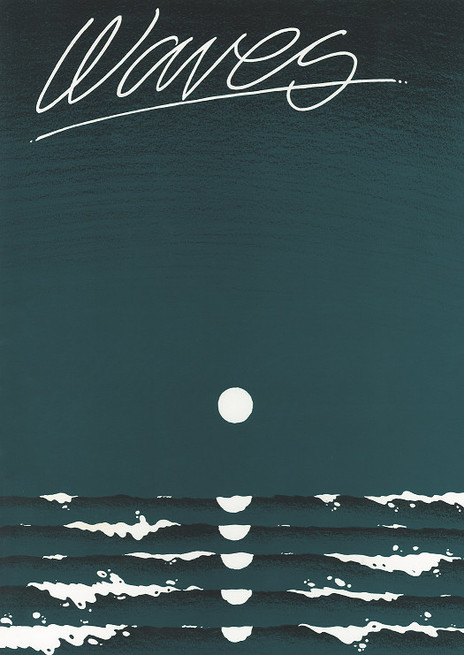
Waves poster, designed by Graeme Gash.
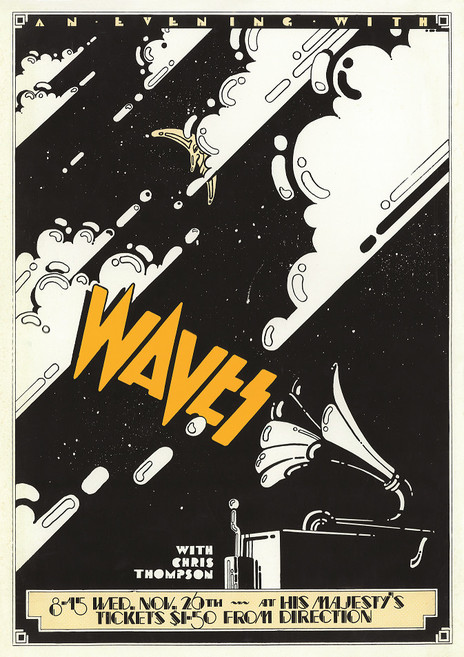
Waves supported by Chris Thompson, His Majesty's Theatre, Auckland, Wednesday 20 November 1974. Poster design by Graeme Gash.
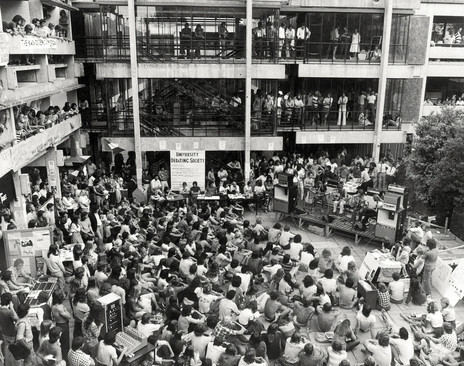
Waves performing onstage at University of Auckland Orientation, 1975.
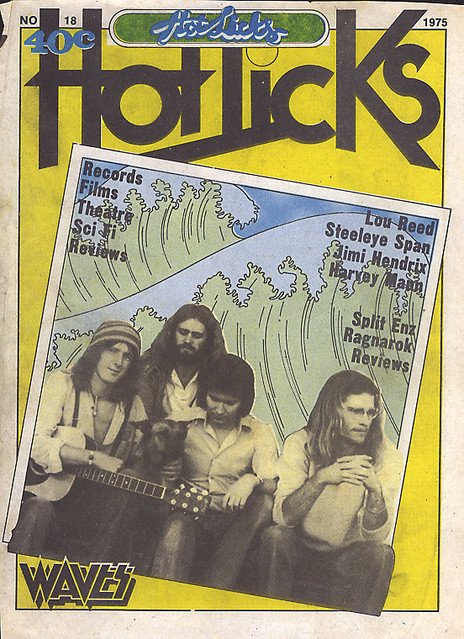
Waves on the cover of Hot Licks magazine #18, 1975.
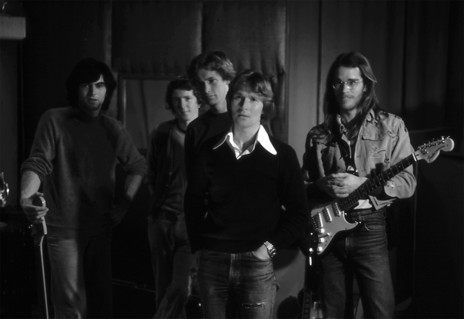
Waves Mk II at Mascot Studio, July 1977. Left to right: Michael Mason, Rex Carter, Graeme Gash, Kevin Wildman, David Marshall.
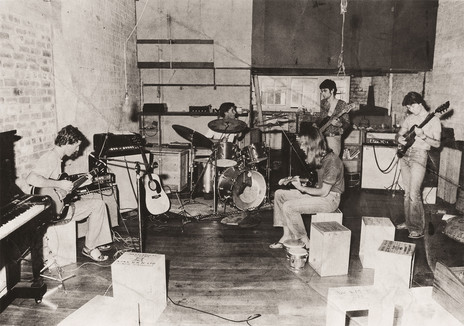
Waves Mk II.
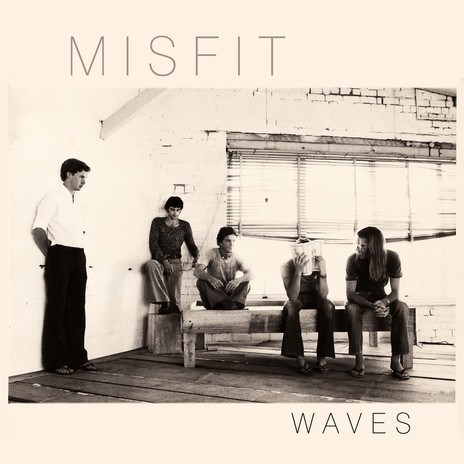
Waves - Misfit cover
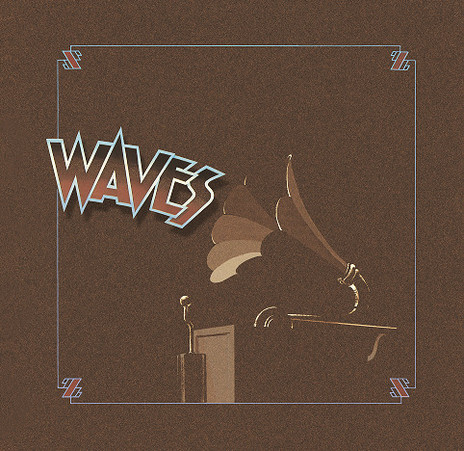
Waves LP cover, Direction Records, 1975.
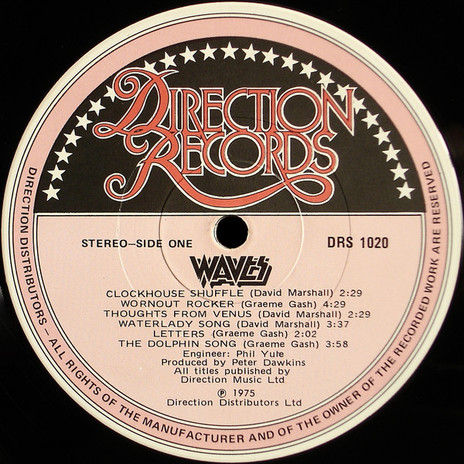
Waves' self-titled LP side one label, Direction Records 1975.
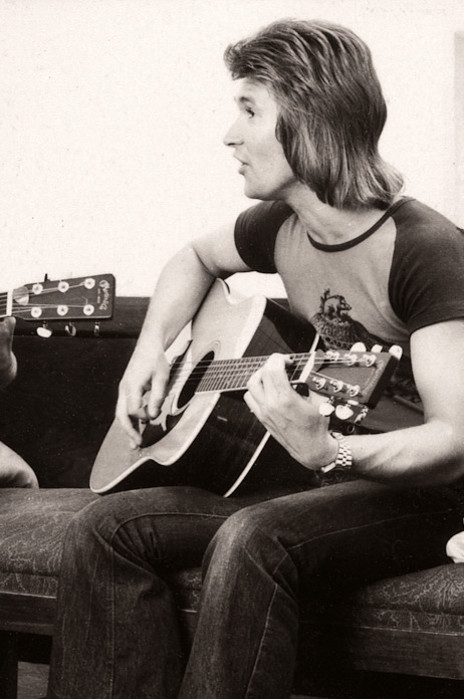
Kevin Wildman, Waves.
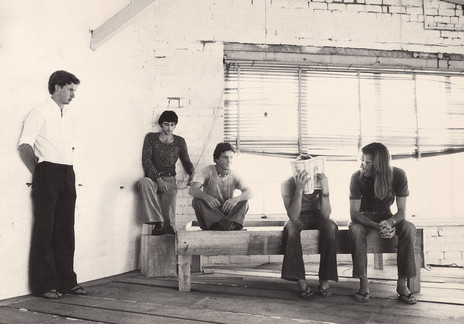
Waves Mk II.
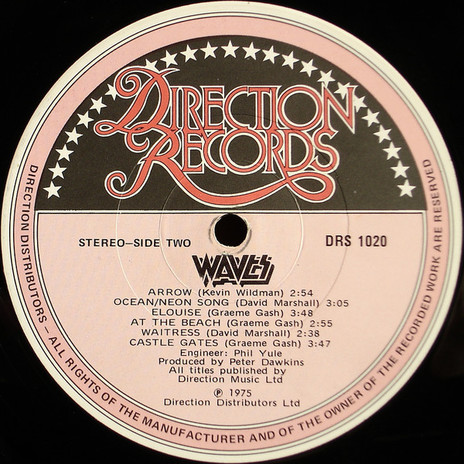
Waves' self-titled LP side two label, Direction Records 1975.
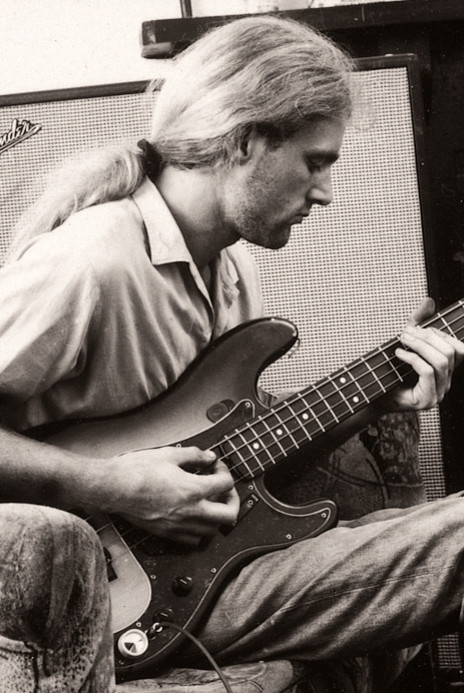
Bassist Michael Matthew, Waves.
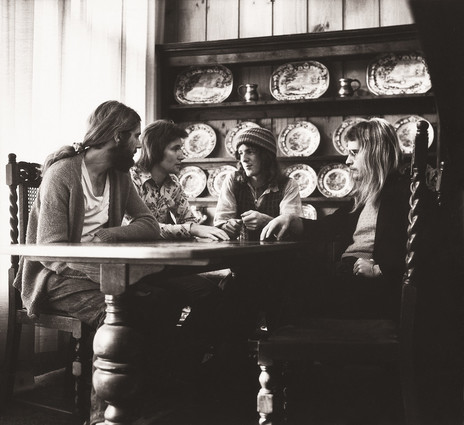
Waves, from left to right: Michael Matthew, Kevin Wildman, Graeme Gash, David Marshall.
Photo credit:
Photo by Terry Fong
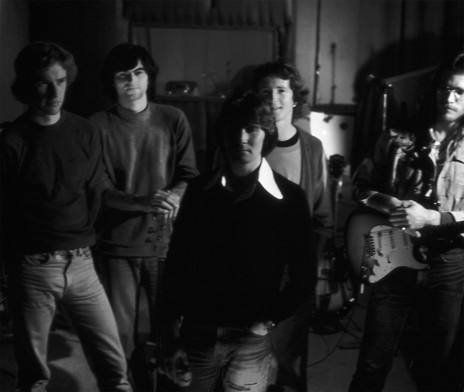
Waves Mk II at Mascot Studio, July 1977. Left to right: Graeme Gash, Michael Mason, Kevin Wildman, Rex Carter, David Marshall.
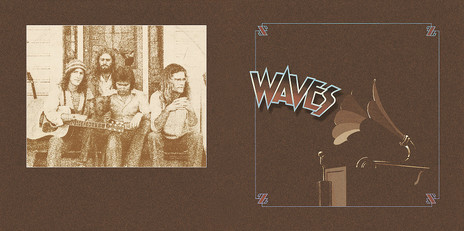
Waves album cover artwork.
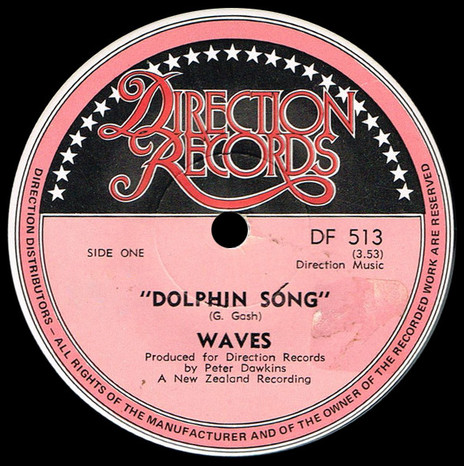
Waves - Dolphin Song (Direction Records, 1975)
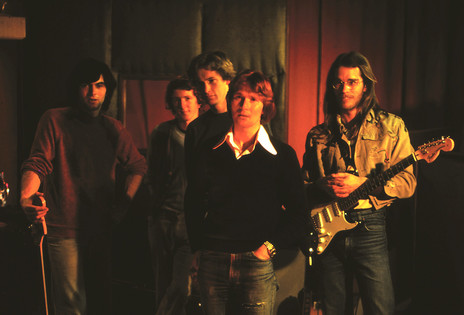
Waves Waves Mk II, Mascot Studio, July 1977. Left to right: Michael Mason, Rex Carter, Graeme Gash, Kevin Wildman, David Marshall.
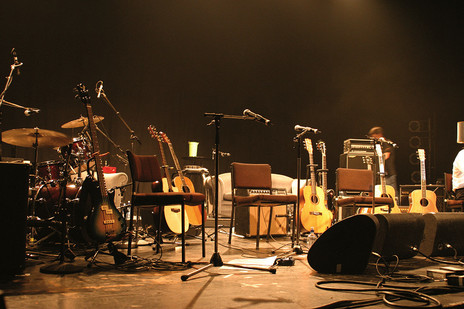
Waves' guitars onstage.
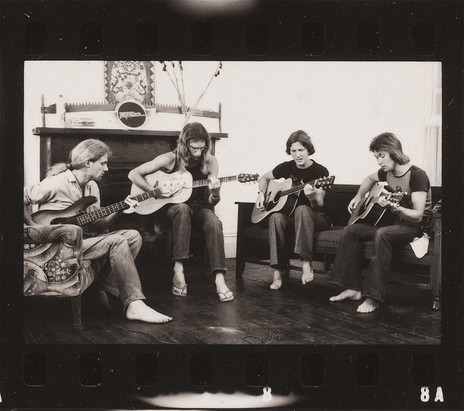
Waves, from left to right: Michael Matthew, David Marshall, Graeme Gash, Kevin Wildman.
Labels:
Direction
Members:
Graeme Gash - vocals, guitar
David Marshall - vocals, guitar
Kevin Wildman - vocals, guitar
Michael Matthew - bass
Michael Mason - bass
Rex Carter - drums
Discography
Trivia:
The bass part on 'Clockhouse Shuffle', the opening track on Waves' self-titled LP, is played by Mike Chunn of Split End and Citizen Band fame.